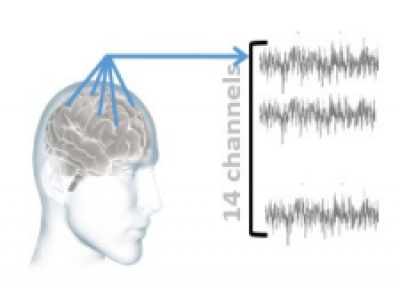Machine Learning
Biometric-based hand modality is considered as one of the most popular biometric technologies especially in forensic applications. Hand recognition is an active research topic in recent years and in order to promote hand’s recognition research, the REGIM-Lab.: REsearch Groups in Intelligent Machines, ENIS, University of Sfax, Tunisia provides the REgim Sfax Tunisian hand database (REST database) freely of charge to mainly hand and palmprint recognition researchers.
- Categories:
 2203 Views
2203 Views
Here are some of the software vulnerability real-world data sets.
The original real-world data sets, collected by Lin et al. (https://github.com/DanielLin1986/TransferRepresentationLearning), which contain the source codes of vulnerable and non-vulnerable functions obtained from six real-world software projects, namely FFmpeg, LibTIFF, LibPNG, VLC and Pidgin. These datasets cover both multimedia and image application categories.
- Categories:
 1545 Views
1545 ViewsAnxiety affects human capabilities and behavior as much as it affects productivity and quality of life. It can be considered as the main cause of depression and suicide. Anxious states are easily detectable by humans due to their acquired cognition, humans interpret the interlocutor’s tone of speech, gesture, facial expressions and recognize their mental state. There is a need for non-invasive reliable techniques that perform the complex task of anxiety detection.
- Categories:
 10005 Views
10005 ViewsCharacter recognition has been widely understood as a means of mechanizing the process of understanding text in the written form to facilitate fast and efficient use of text. Indeed, text existing all around us presents information for peoples. However, tourists in foreign countries are unable to understand what indicate text on road signs, shop names, product advertisements, posters, etc. when they are unfamiliar with the native language of the visited country.
- Categories:
 815 Views
815 ViewsThe ADAB database (The Arabic handwriting Data Base) was developed to advance the research and development of Arabic on-line handwritten systems. This database is developed in cooperation between the Institut fuer Nachrichtentechnik (IfN) and Research Groups in Intelligent Machines, University of Sfax, Tunisia. The text written is from 937 Tunisian town/village names. A pre-label assigned to each file consists of the postcode in a sequence of Numeric Character References, which stored in the UPX file format.
- Categories:
 2857 Views
2857 ViewsThe dataset consists all the Telugu characters that contains Vowels, Consonants and combine characters such as Othulu (Consonant-Consonant) and Guninthamulu (Consonant-Volwels). The main objective of this dataset to recognize handwritten Telugu characters, from that convert handwritten document into editable electronic copy.
- Categories:
 5034 Views
5034 Views
In modern computational science, the interplay existing between machine learning and optimization process marks the most vital developments. Optimization plays an important role in mechanical industries because it leads to reduce in material cost, time consumption and increase in production rate. The recent work focuses on performing the optimization task on Friction Stir Welding process for obtaining the maximum Ultimate Tensile Strength (UTS) of the friction stir welded joints. Two machine learning algorithms i.e.
- Categories:
 420 Views
420 Views
Training, Test, and Validation data pertaining to the real-time packet data captured in Sonic Firewall is attached herewith.
- Categories:
 260 Views
260 ViewsThe data collection was carried out over several months and across several cities including but not limited to Quetta, Islamabad and Karachi, Pakistan. Ultimately, the number of images collected as part of the Pakistani dataset were, albeit in a very small quantity. The images taken were also distributed across the classes unevenly, just like the German dataset. All the 359 images were then manually cropped to filter out the unwanted image background data. All the images were sorted into folders with names corresponding to the label of the images.
- Categories:
 2284 Views
2284 ViewsAdvent in machine learning is leaving a deep impact on various sectors including the material science domain. The present paper highlights the application of various supervised machine learning regression algorithms such as polynomial regression, decision tree regression algorithm, random forest algorithm, support vector regression algorithm and artificial neural network algorithm to determine the thin film thickness of Polystyrene on the glass substrates.
- Categories:
 258 Views
258 Views





